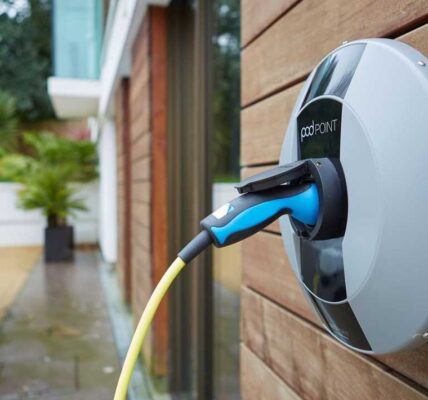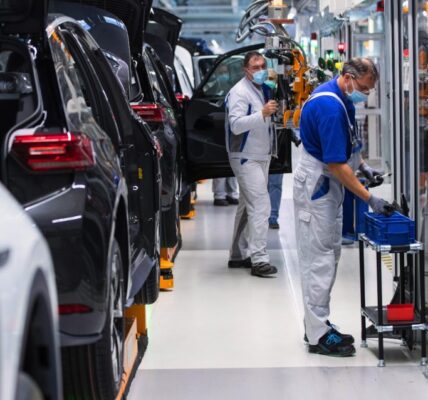A Failure To Attract Gigafactories To Make Batteries For EVs Could Cost The UK 105,000 Jobs By 2040
The UK car industry risks losing out to Europe in the race to build major battery factories that are crucial to the sector’s future, putting jobs at risk across the country, Faraday Institution, a Government-backed research body has warned.
Car makers around the world are racing to switch production from internal combustion engines towards electric cars with zero exhaust emissions, amid tightening limits on carbon dioxide output and the threat of outright bans that could come as early as 2032 in the UK.
Chinese companies are the main suppliers of lithium ion batteries to European manufacturers, but car makers are looking to produce their own closer to their factories, meaning billions of pounds of investments are up for grabs, with many UK factories competing directly against their counterparts in France, Germany and Italy.
“Over time, car production will migrate to where the battery production is,” said Neil Morris, the Faraday Institution’s chief executive. “We’re at or near the fork in the road.”
If the UK were to build enough batteries to replace fossil fuel car production, direct employment in the automotive industry could rebound from about 170,000 jobs in 2020 to as many as 220,000 in 2040.
However, a worst-case outcome with no large-scale UK battery production could lead domestic vehicle producers to “gradually wind down their production of internal combustion engine vehicles, progressively eliminating the jobs of the 170,000 people directly employed in the UK automotive sector,” Faraday’s report says.
France and Germany have announced plans for up to €6bn (£5.3bn) of investments in battery production, as they seek to secure employment for millions of workers in their automotive industries.
The European commission has also approved a separate plan by Belgium, Finland, France, Germany, Italy, Poland and Sweden to pump €3.2bn into starting a European battery industry.
The continued uncertainty over Brexit negotiations has further complicated the British government’s efforts to secure private investment in a gigafactory.
Despite the decline of its homegrown industry, the UK has managed to carve out a position as the fourth-largest car producer in Europe. However, all of the UK’s large factories are owned by foreign companies, many of whom have been averse to making investments until the long-term trading relationship with the EU is decided.
The UK’s departure from the EU was thought by industry insiders to be a factor in, as well as Nissan’s U-turn on building its X-Trail SUV in Sunderland. The Vauxhall plant in Ellesmere Port is also under threat from a bad Brexit deal.
Elon Musk, the CEO of Tesla, said in November that uncertainty over the Brexit process was a key reason for the US electric car maker’s choice of Berlin for its first European gigafactory, rather than a UK location.
The Society of Motor Manufacturers & Traders, which represents UK carmakers, agrees that the industry needs further investment.
“As the global transition to zero-emission transport gathers pace, we must ensure the UK remains an attractive place to design, build and sell electric vehicles,” the SMMT said. “We already make some of the bestselling electric cars and taxis, but to maintain our manufacturing competitiveness and safeguard jobs for the future demands significant supply chain investment – securing large-scale battery manufacturing capability will be essential to driving this.”







